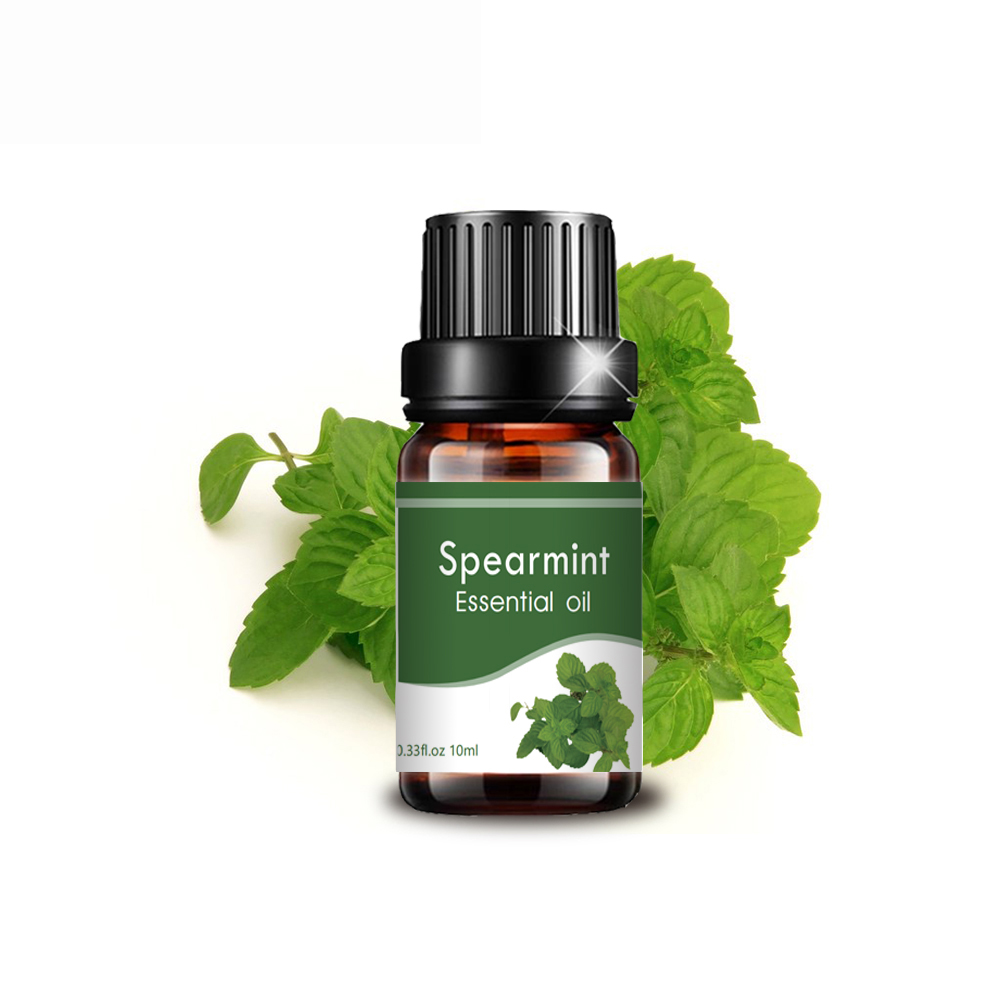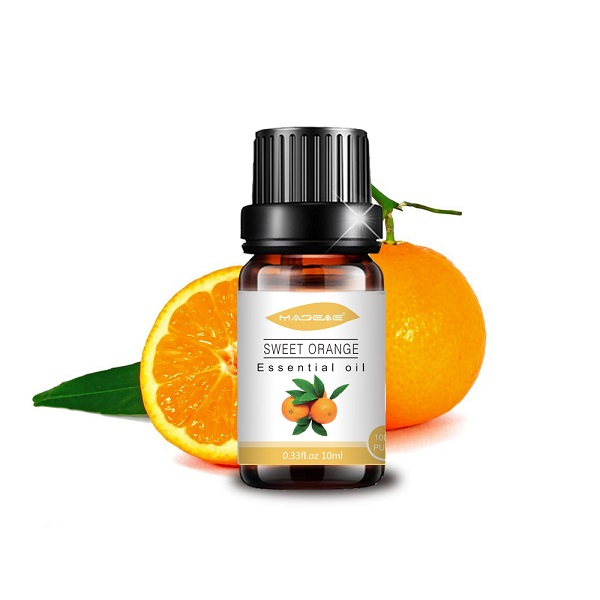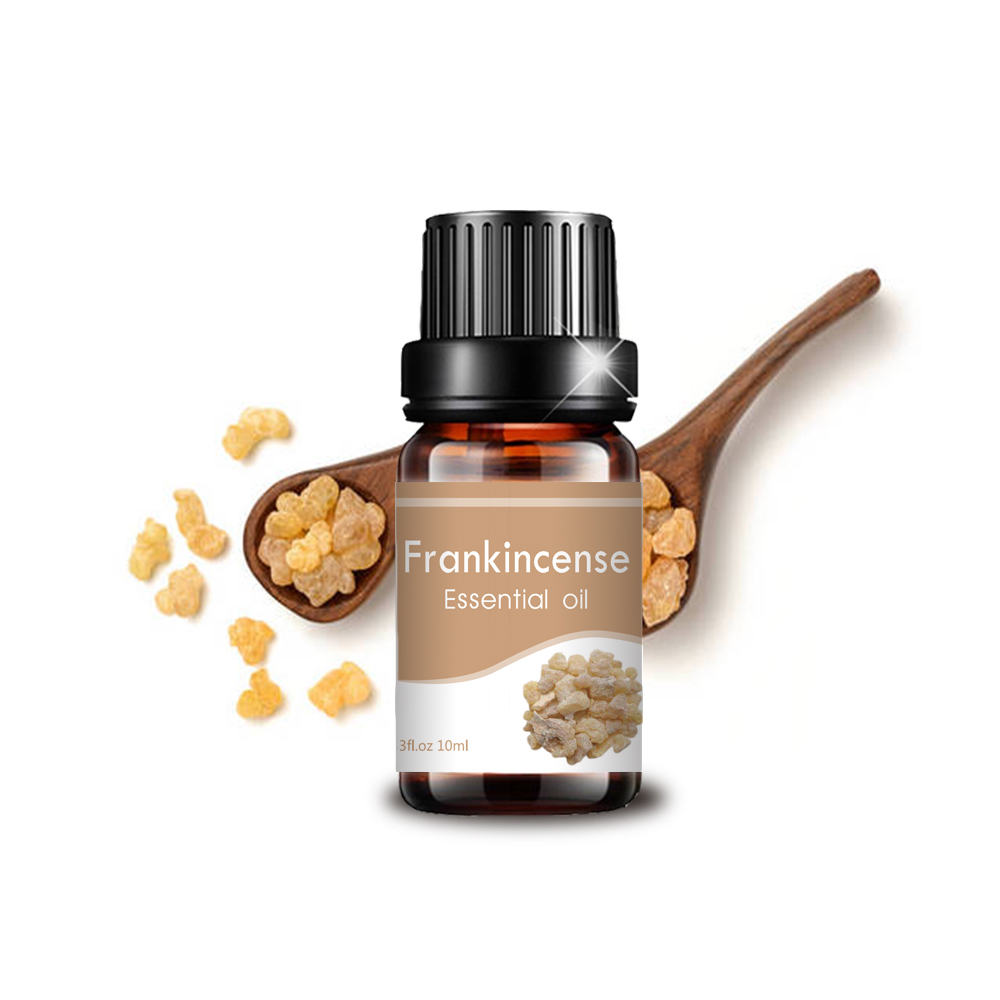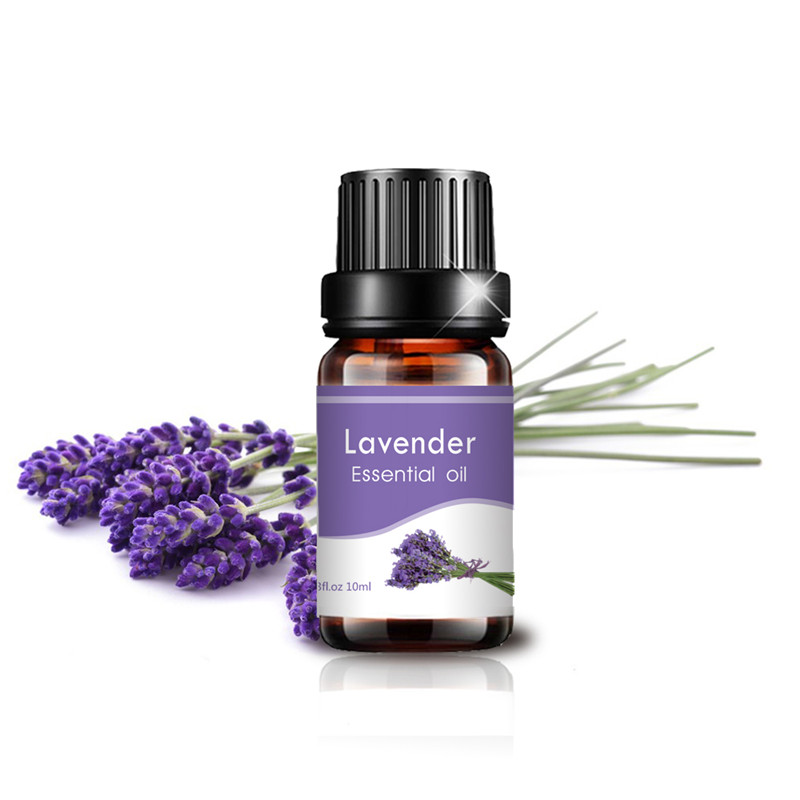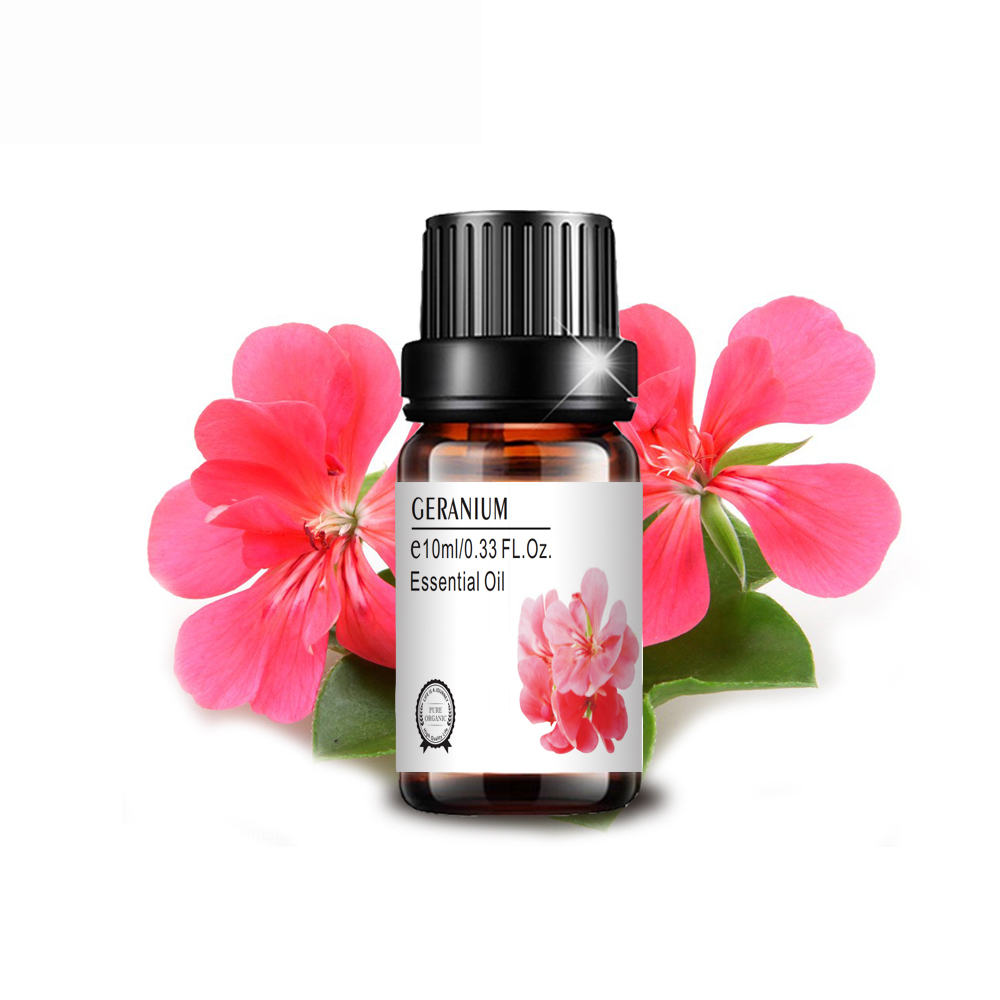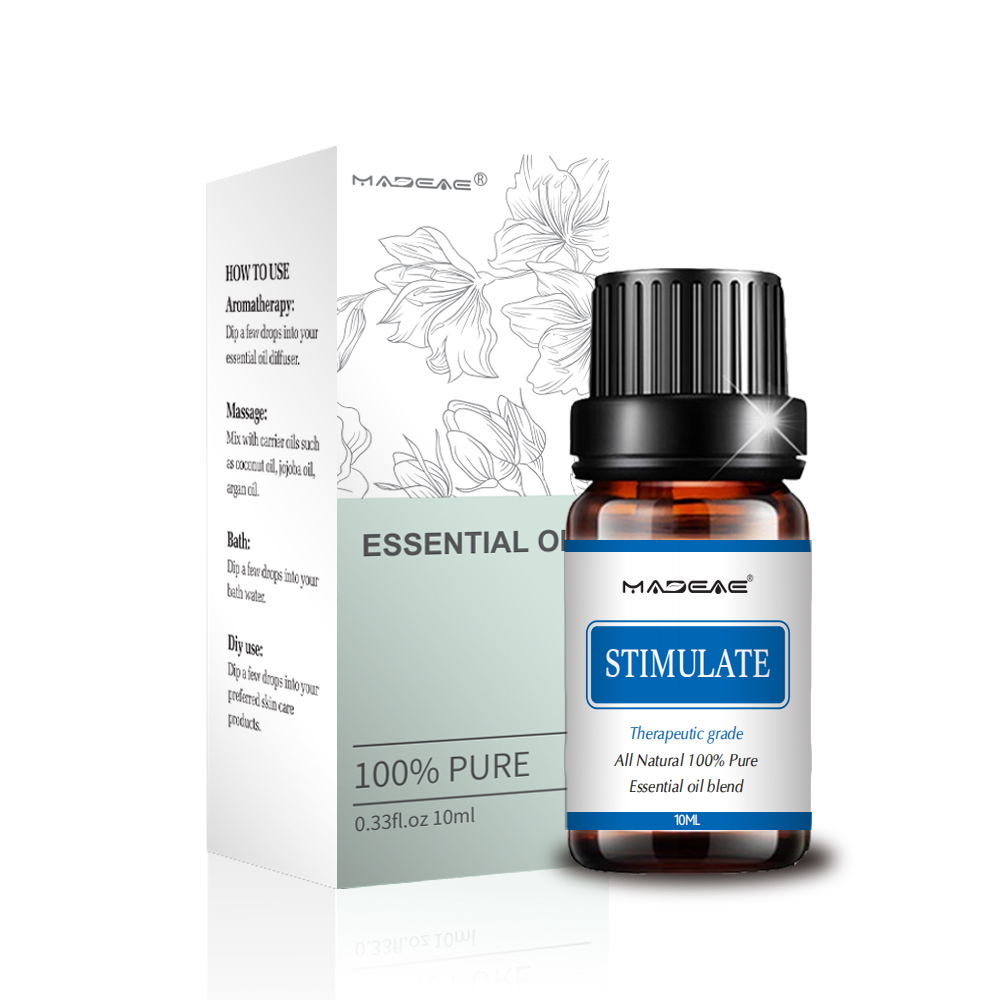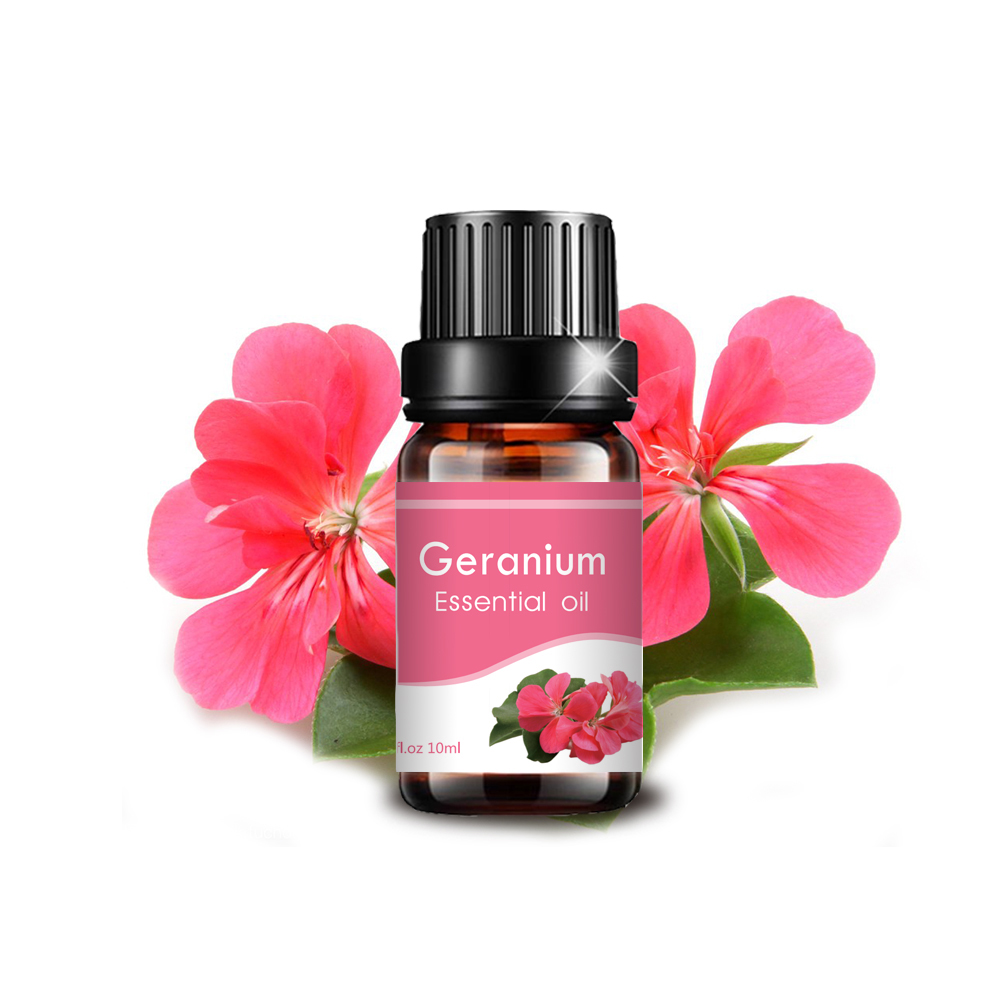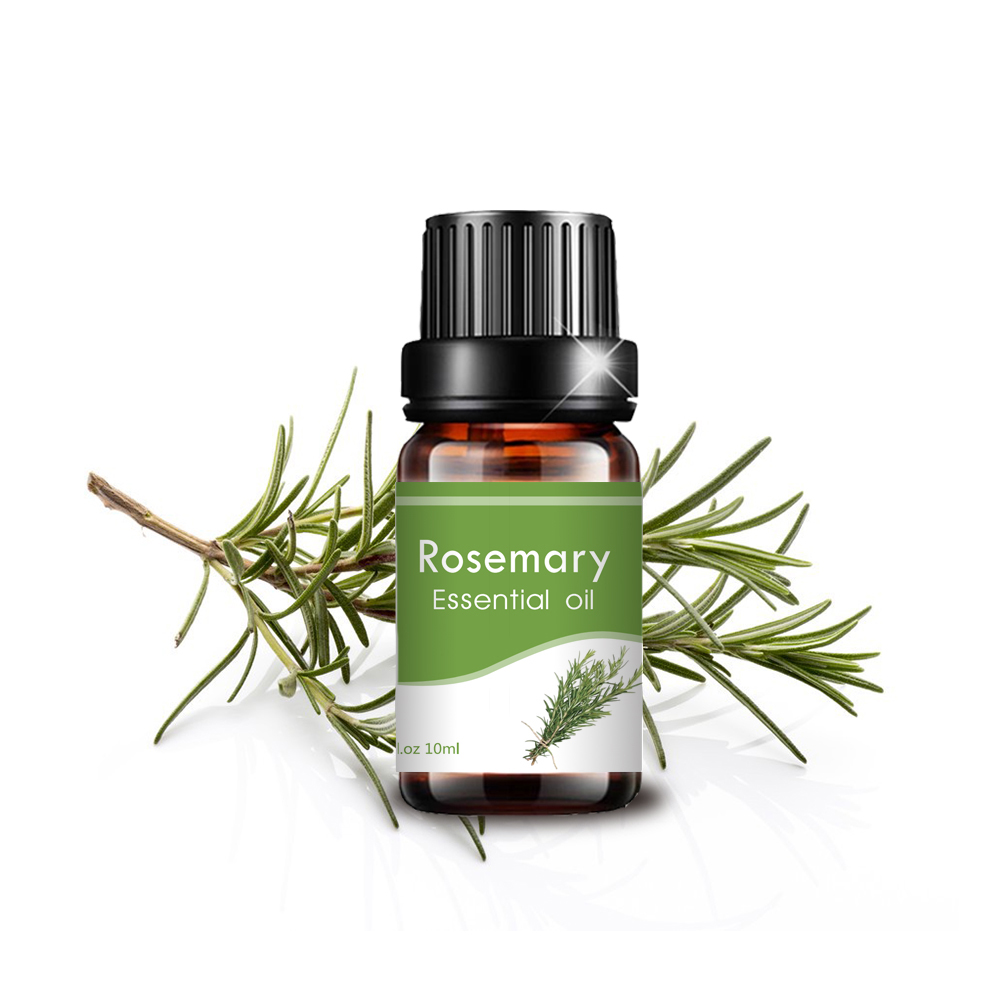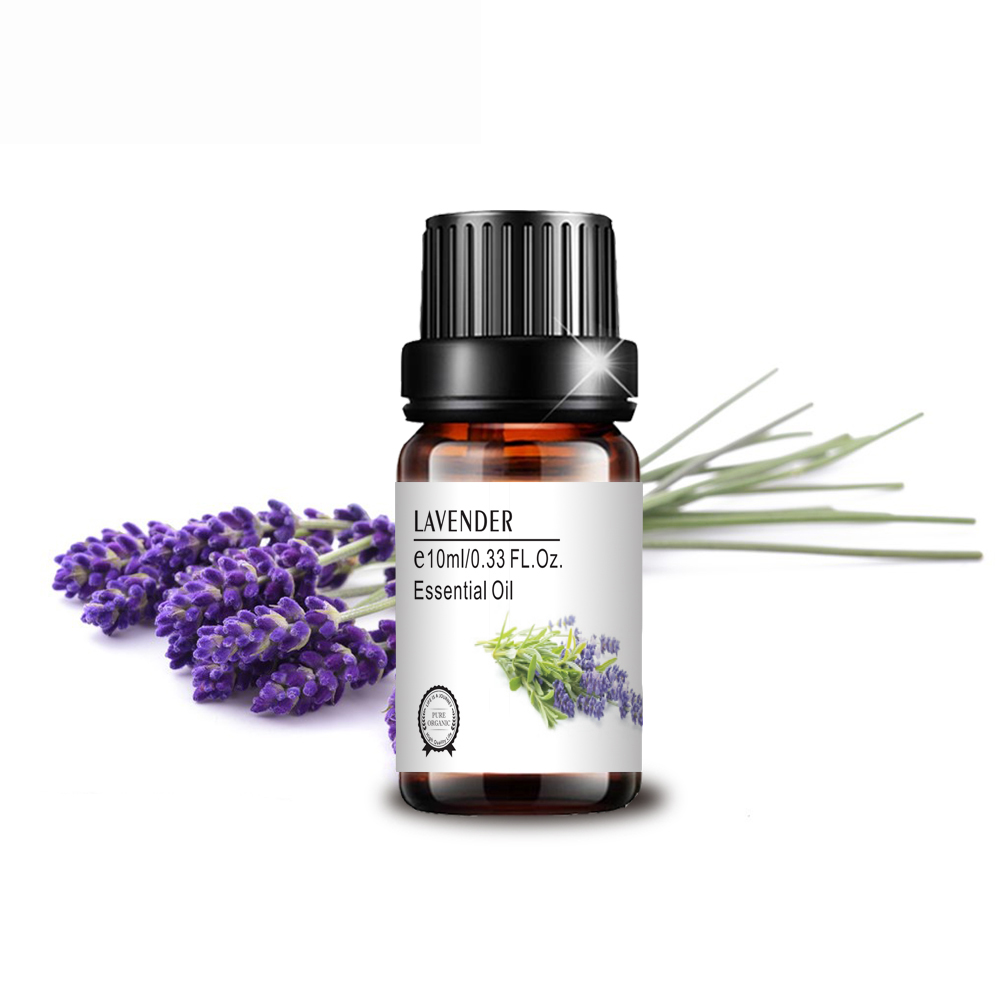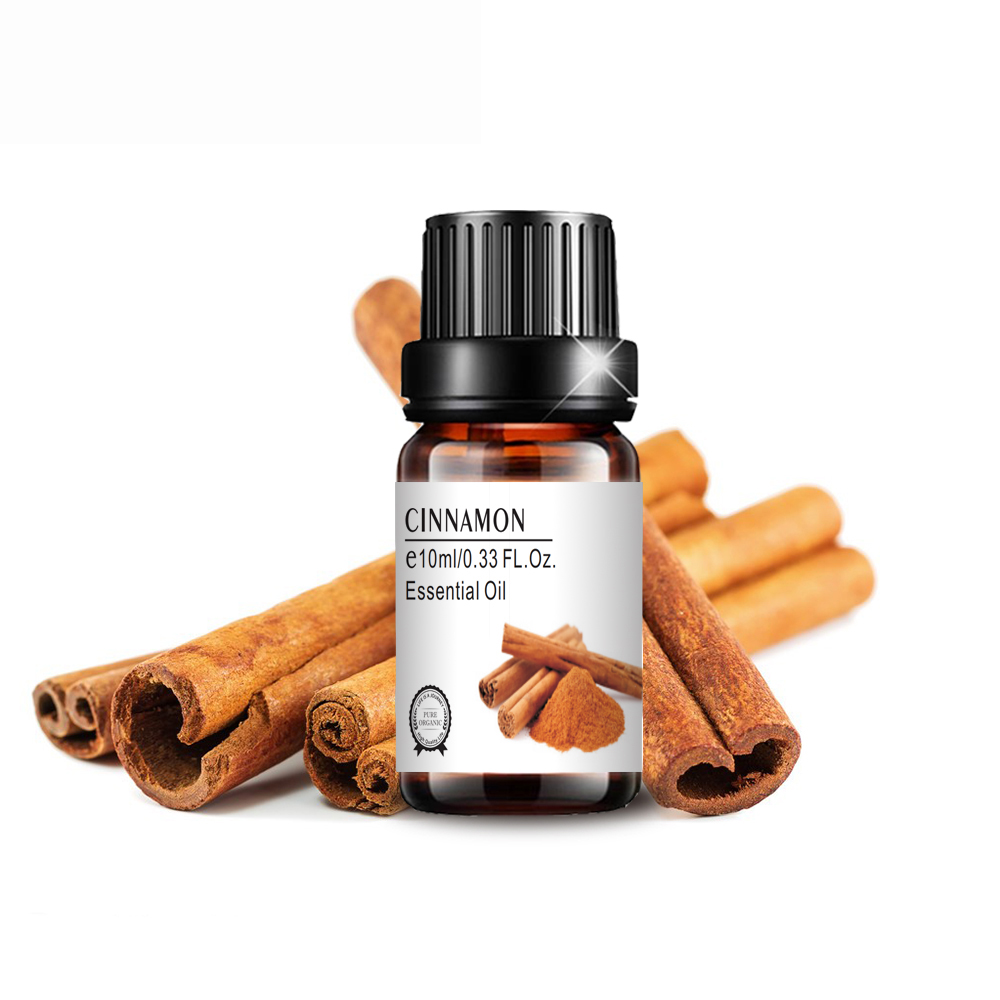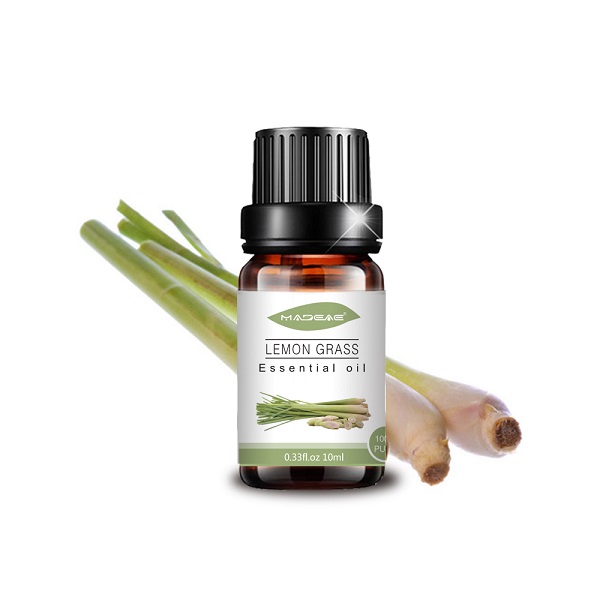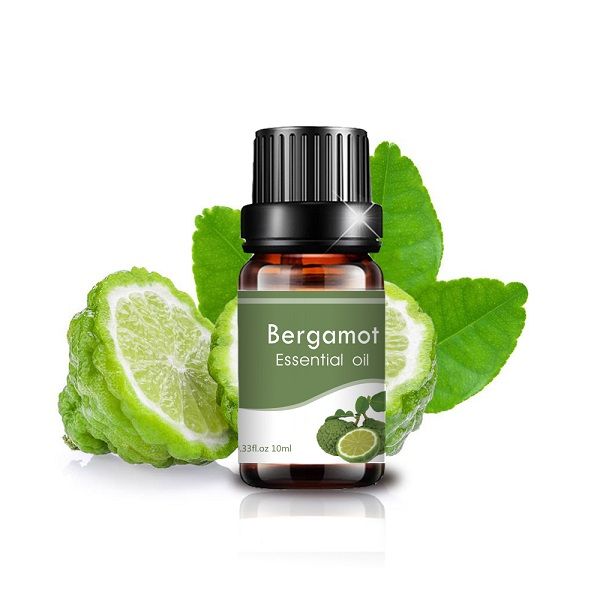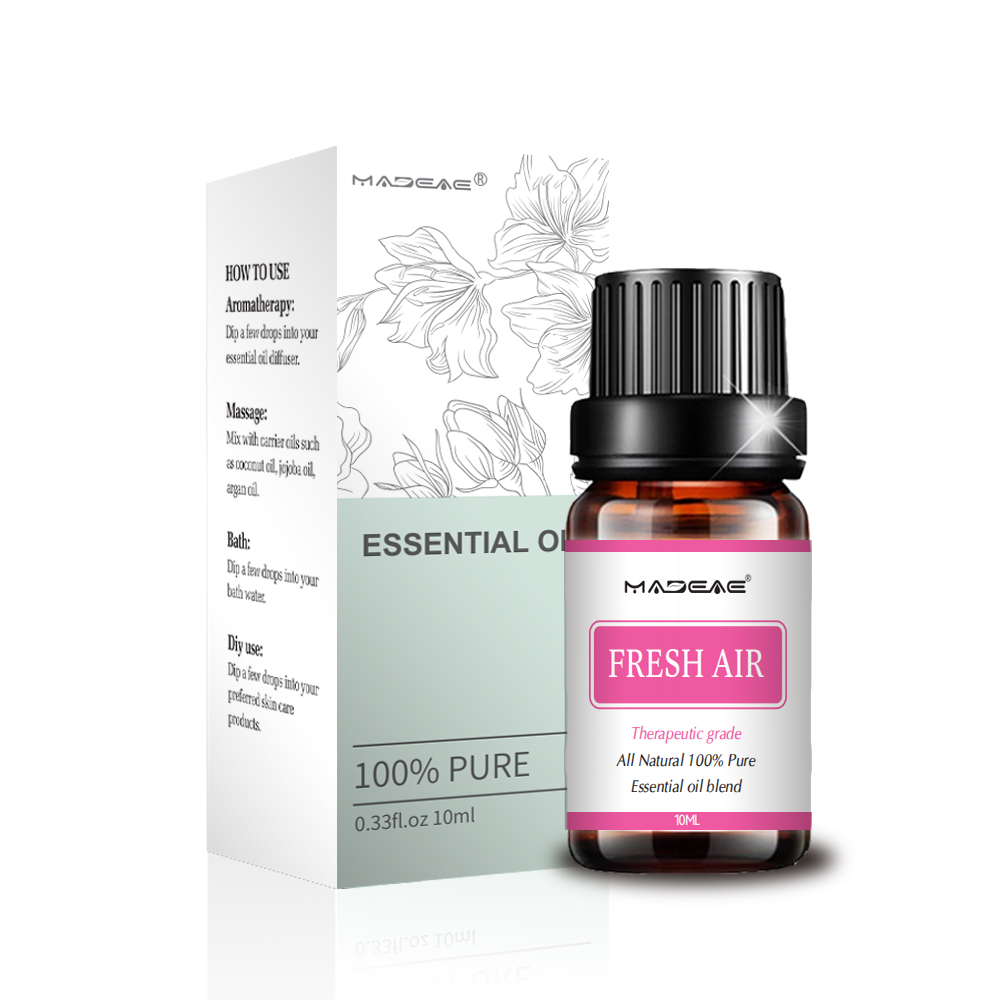short description:
What Is Spearmint Oil?
Part of the mint family, spearmint is a plant native to Europe, the Middle East, and Asia. It’s now widely cultivated around the world and has been a staple in traditional Chinese medicine, Ayurvedic remedies, and natural treatments for many years.
Even today, many holistic practitioners turn to spearmint to address a variety of ailments, including nausea, indigestion, toothaches, headaches, cramps, and sore throats.
Spearmint gets its name from the plant’s spear-shaped leaves, although it’s also known as common mint, garden mint, and its botanical name, Mentha spicata. To make spearmint oil, the plant’s leaves and flowering tops are extracted through steam distillation.
While spearmint has a host of beneficial compounds, the most significant ones are carvone, limonene, and 1,8-cineole (eucalyptol). These compounds are loaded with antimicrobial, antioxidant, and anti-inflammatory properties and are also found in other plants such as rosemary, tea tree, eucalyptus, and peppermint.
Spearmint is a milder alternative to peppermint essential oil, which has a much stronger scent and tingling sensation due to menthol. That makes it a great topical and aromatic option for those with sensitive skin or a sensitive nose.
How to Use Spearmint Essential Oil
Spearmint oil can be applied to the skin, inhaled as fragrant vapors, and consumed orally (usually as an ingredient in food or drinks). However, don’t ever ingest spearmint oil — or any essential oil — unless you speak with your health practitioner first. Doing so could have adverse effects.
As with all essential oils, pure spearmint oil is concentrated, so always dilute it first. For example, add a few drops to an essential oil diffuser or your bathwater. When applying to your skin, be sure to use a carrier oil such as almond oil, jojoba oil, or coconut oil.
You can also create spearmint tea by steeping torn spearmint leaves in hot water for about five minutes. Spearmint tea is naturally caffeine-free and tastes great both hot and cold.
Benefits of Spearmint Essential Oil
1. May Reduce Hormonal Acne
The antibacterial, anti-inflammatory, and antioxidant properties of spearmint oil don’t just offer oral health benefits — they may also be able to improve skin conditions such as acne.
Spearmint has anti-androgenic effects, which means it can reduce the production of testosterone. Too much testosterone leads to excessive sebum (oil) production, which often triggers acne.
While more studies are needed to explicitly evaluate its effect on acne, spearmint’s ability to block testosterone makes it a potentially powerful alternative to drugs that treat hormonal acne.
2. Helps With Digestive Issues
Thanks to the presence of carvone, spearmint can help with many digestive issues from indigestion and bloating to gas and cramps. Studies show that carvone induces antispasmodic effects to reduce muscle contractions in the digestive tract.
In one eight-week study, volunteers with irritable bowel syndrome (IBS) found symptom relief when they took a supplement that contained a combination of spearmint, lemon balm, and coriander.
3. Can Improve Mood
Spearmint oil’s stimulating scent is at both a pick-me-up and a stress reliever. A 2017 comprehensive review determined that aromatherapy is effective at alleviating depressive symptoms, especially when used with massage.
For your own DIY aromatherapy massage oil blend, add 2-3 drops of spearmint oil to the carrier oil of your choice.
4. May Reduce Stress
Along with its mood-boosting aromatherapeutic effects, spearmint may decrease anxiety and improve sleep when consumed orally. In a 2018 study, scientists found administering rats aqueous extracts of spearmint and broadleaf plantain caused anti-anxiety and sedative effects.
Further research is required, but the antioxidant compounds of spearmint are considered responsible for these beneficial outcomes.
5. May Reduce Unwanted Facial Hair
Because of its testosterone-inhibiting qualities, spearmint can help diminish facial hair. Hirsutism is a condition caused by too much testosterone, and it results in excessive hair growth on the face, chest, and back.
In 2010, one study found women who drank spearmint tea twice a day had significantly lowered testosterone levels and less facial hair. Likewise, a 2017 study (conducted on rats) found spearmint essential oil restricted the production of testosterone.
6. Can Improve Memory
There are some promising studies that link spearmint with better memory function. A 2016 study found extracts from spearmint and rosemary improved learning and memory in mice. In a 2018 study, men and women with age-related memory impairment took two spearmint extract capsules daily for 90 days. Those who took the 900 milligrams-per-day capsules had 15% better working memory and spatial working memory accuracy.
FOB Price: US $0.5 - 9,999 / Piece
Min.Order Quantity: 100 Piece/Pieces
Supply Ability: 10000 Piece/Pieces per Month
